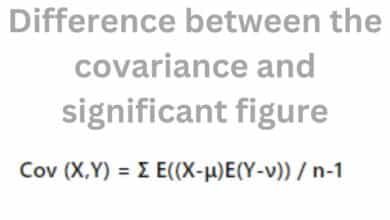Top 6 HRM Functions Every HR Professional Should Understand

Human Resource Management (HRM) is an essential aspect of any organisation. It is a department that ensures the company’s workforce is managed and utilised to its full potential. This blog will explore the top 6 HRM functions every HR professional should understand.
HRM is responsible for numerous functions, including recruitment, training and development, compensation and benefits, employee relations, and performance management. These functions effectively manage the organisation’s workforce and ensure its success.
Top 6 HRM functions every HR professional should understand
- Recruitment and Selection
Recruitment and selection are the primary functions of HRM. The process involves sourcing and attracting qualified candidates, assessing their skills and qualifications, and selecting the most suitable candidate.
HR professionals use various methods to recruit candidates, including job advertisements, social media, employee referrals, and job fairs. They also use different selection tools, such as resumes, interviews, reference checks, and aptitude tests, to identify the most suitable candidate for the job.
A robust recruitment and selection process helps organisations attract and retain high-quality talent.
- Training and Development
Training and development programmes are essential to improve the skills and knowledge of employees. HR professionals design and deliver training programmes that align with the company’s goals and help employees achieve their career objectives.
Training programmes may include on-the-job training, classroom sessions, e-learning, coaching, and mentoring. HR professionals also provide development opportunities that help employees acquire new skills and competencies required for their roles.
- Compensation and Benefits
Compensation and benefits are critical in attracting and retaining employees. HR professionals are responsible for designing and managing compensation and benefits programmes that align with the company’s goals and objectives.
Compensation includes salaries, bonuses, and incentives, while benefits may include healthcare, retirement plans, and vacation time. HR professionals must ensure that their compensation and benefits packages are fair, consistent, and comply with legal requirements.
A robust compensation and benefits programme helps organisations maintain a motivated and engaged workforce.
- Employee Relations
Employee relations refer to the relationship between employees and the organisation. HR professionals ensure that the company complies with labour laws and regulations and manages employee grievances and disputes. They develop and implement policies and procedures that ensure a safe and healthy work environment. HR professionals also foster a positive work culture that promotes teamwork, communication, and collaboration among employees.
- Performance Management
Performance management involves setting performance expectations, providing feedback, and assessing employee performance. HR professionals use various methods to manage employee performance, including goal setting, performance appraisal, and performance feedback. The process helps identify areas where employees need improvement and provides feedback on their strengths and weaknesses. A robust performance management process helps organisations align employee performance with the company’s goals.
- Employee Engagement
Employee engagement refers to employees’ emotional and psychological attachment to work and the organisation. HR professionals develop and implement strategies that promote employee engagement, such as employee recognition programmes, team-building activities, and wellness programmes. They also conduct surveys to measure employee satisfaction and engagement levels and use the feedback to improve the work environment.
Take Away
HRM plays a critical role in managing an organisation’s workforce. The functions discussed in this blog are essential for HR professionals to understand and execute effectively. These functions require HR professionals to possess various skills, such as communication, analytical thinking, problem-solving, and leadership.
As the workplace evolves, HR professionals must adapt and stay current with new trends, technologies, and practices in HR management. To do so, enrolling in HR courses online is the best option. These courses offer an excellent opportunity for HR professionals to enhance their knowledge and skills, regardless of location or schedule.
By enrolling in HR courses online, HR professionals can learn from experienced instructors, interact with peers, and gain practical knowledge and skills that can help them succeed and contribute to the success of their organisations.
Frequently Asked Questions (FAQs)
What is Human Resource Management (HRM)?
Human Resource Management (HRM) is an essential aspect of any organisation that ensures the company’s workforce is managed and utilised to its full potential.
What are the top 6 HRM functions?
The top 6 HRM functions are Recruitment and Selection, Training and Development, Compensation and Benefits, Employee Relations, Performance Management, and Employee Engagement.
What is the role of HRM in Recruitment and Selection?
HRM is responsible for sourcing and attracting qualified candidates, assessing their skills and qualifications, and selecting the most suitable candidate. They use various methods and tools for this process.
How does HRM contribute to Training and Development?
HRM designs and delivers training programmes that align with the company’s goals and help employees achieve their career objectives. They also provide development opportunities that help employees acquire new skills and competencies required for their roles.
What is the role of HRM in Compensation and Benefits?
HRM is responsible for designing and managing compensation and benefits programmes that align with the company’s goals and objectives. They ensure that their compensation and benefits packages are fair, consistent, and comply with legal requirements.
How does HRM handle Employee Relations?
HRM ensures that the company complies with labour laws and regulations and manages employee grievances and disputes. They foster a positive work culture that promotes teamwork, communication, and collaboration among employees.
What is the role of HRM in Performance Management?
HRM is involved in setting performance expectations, providing feedback, and assessing employee performance. They help identify areas where employees need improvement and provide feedback on their strengths and weaknesses.
How does HRM promote Employee Engagement?
HRM develops and implements strategies that promote employee engagement, such as employee recognition programmes, team-building activities, and wellness programmes. They also conduct surveys to measure employee satisfaction and engagement levels.






